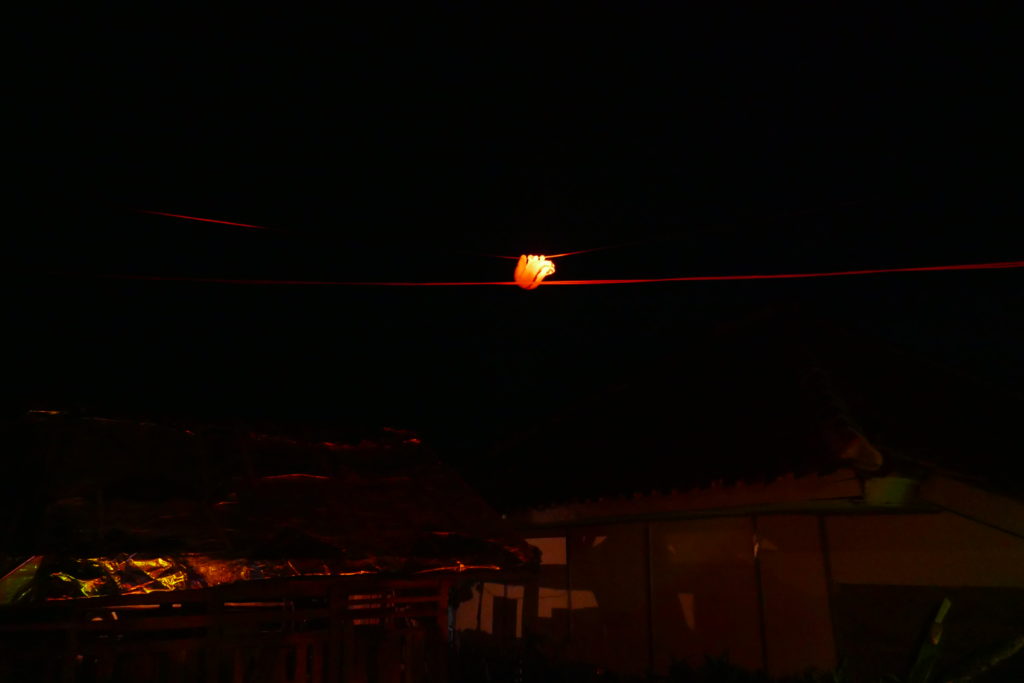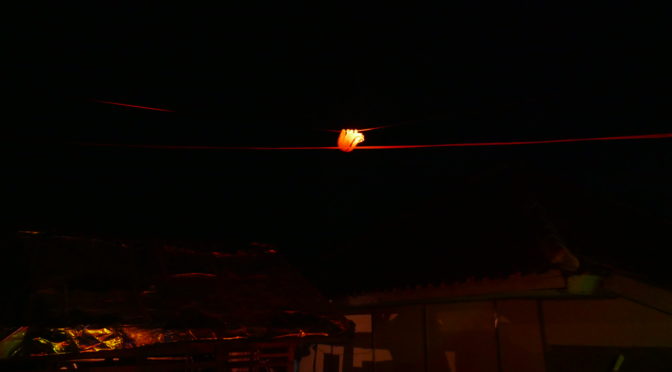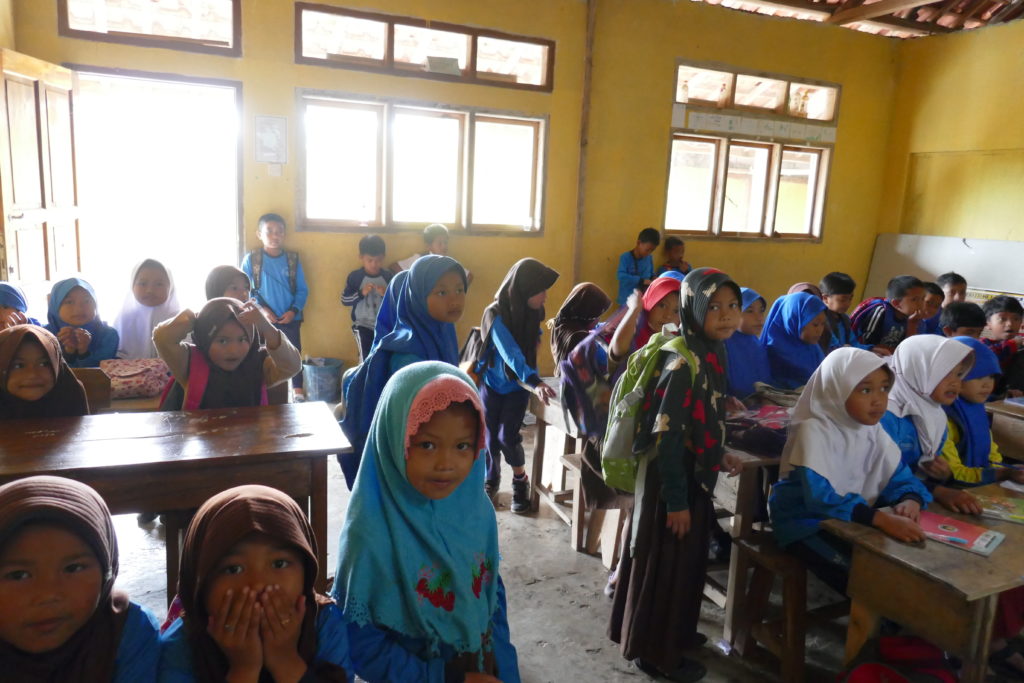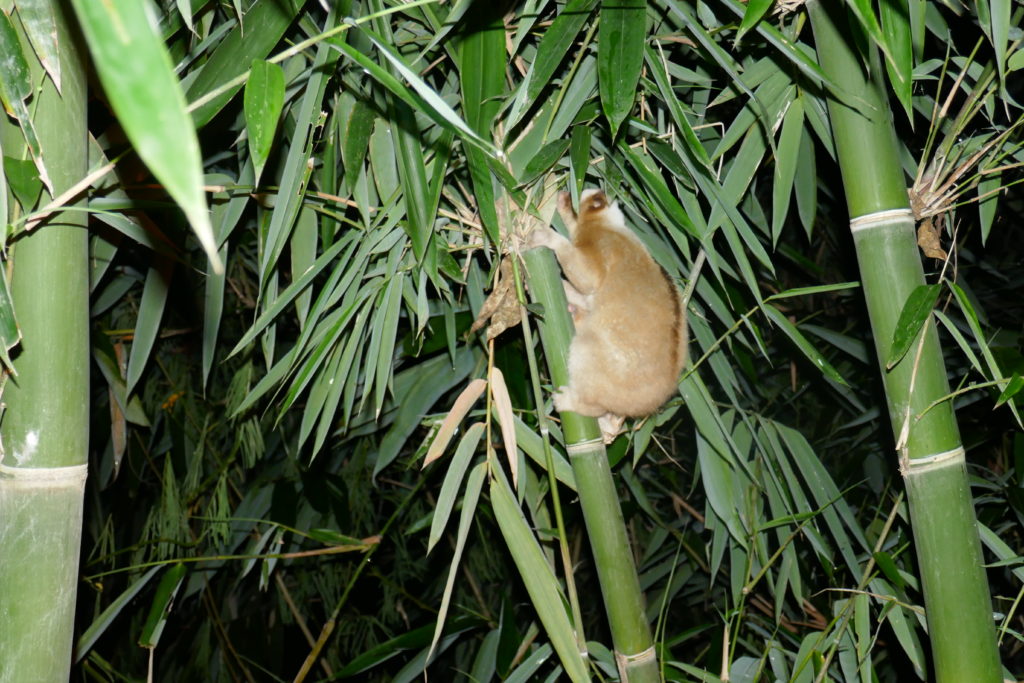Slow Loris Conservation Through Education and Outreach
By Ella Brown – Field Station Coordinator
As the Field Station Coordinator, my job encompasses many responsibilities. From conducting slow loris observations, paying salaries, and overseeing volunteers. Here, I do a large mixture of things. One aspect of my job that is very important to both me and the organization is our education and outreach activities. Every week, we go a local school to lead what is called Nature Club. About 70 children, ages 6-13, attend our lessons. We start each session with a small English lesson, usually about simple grammar rules or new vocabulary words, and continue with lessons about local wildlife and conservation. Every 3 months, we have a new theme to our lessons. We just started a new theme, with the help of a volunteer working on her Master’s thesis, called Building Bridges. For the next 12 weeks, our students will learn about the different lorises that live near their homes and why protecting them is important. Many of the children’s families own farms in the mountains that intersect slow loris homeranges. Therefore, we will “assign” each student a loris who they will learn about and want to protect. We hope to instill a sense of pride in each student about the loris whose home they share, encouraging empathy and awareness of lorises and all other Indonesian wildlife.
Lessons like these are particularly important because the villages these children live in are close to many slow loris homeranges. Often, slow lorises will travel through local farms or even find their way into a village (particularly when a loris is expanding his or her homerange). This can be a very scary and confusing experience for the loris. Just last week, we got news that an adult slow loris had wandered into the village not far from the LFP headquarters. I and a few other staff members find her hanging from an electric cable strung between two houses. There was a small group of concerned villagers, who knew about LFP and what we do here, and had contacted us out of concern for the welfare of this loris. With their help, we were able to safely capture the loris. We briefly checked her for any physical ailments, and found that she was completely healthy. Then, we carefully walked with her farther up the mountain, where we were able to release her back into the forest. She quickly climbed up a large stalk of bamboo and disappeared into the leaves above, thankful but happy to distance herself from any humans.

Through our outreach and education, we are able to teach local people about how amazing and important slow lorises and all Indonesian wildlife are. Another way we spread our message is by printing large LFP calendars and handing them out to the villagers. This is a great way for us to let everyone know what we do and to also better know the poeple whose vilage we live in.
In these ways, education and community outreach is a vital part of the LFP mission. If we had not persistently educated and made our presence known to local villagers, the loris who made her way into the village may have met a much sadder fate. Instances such as that let me know that what we are doing here is important, and that all the hard work we do every single day is definitely worth it!



